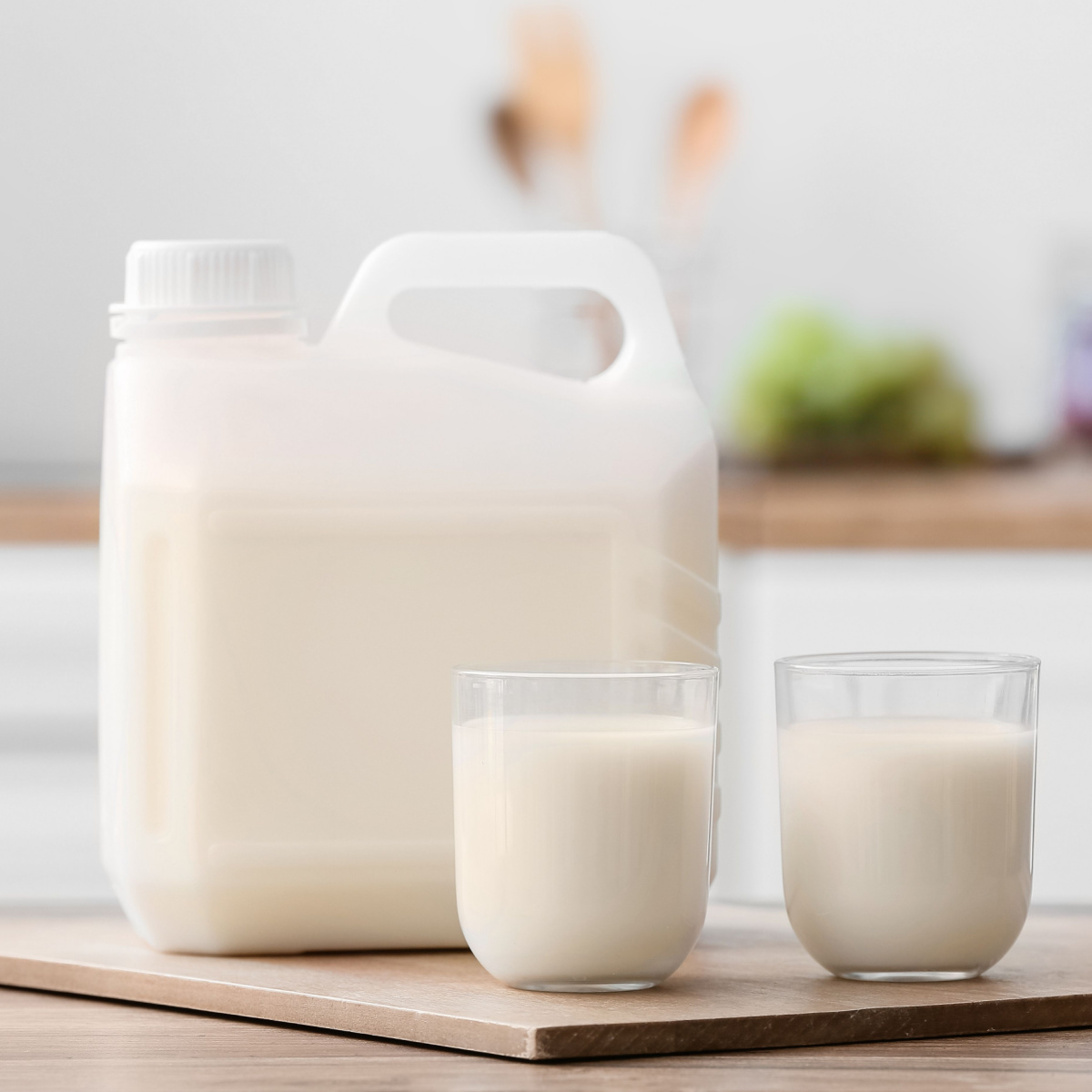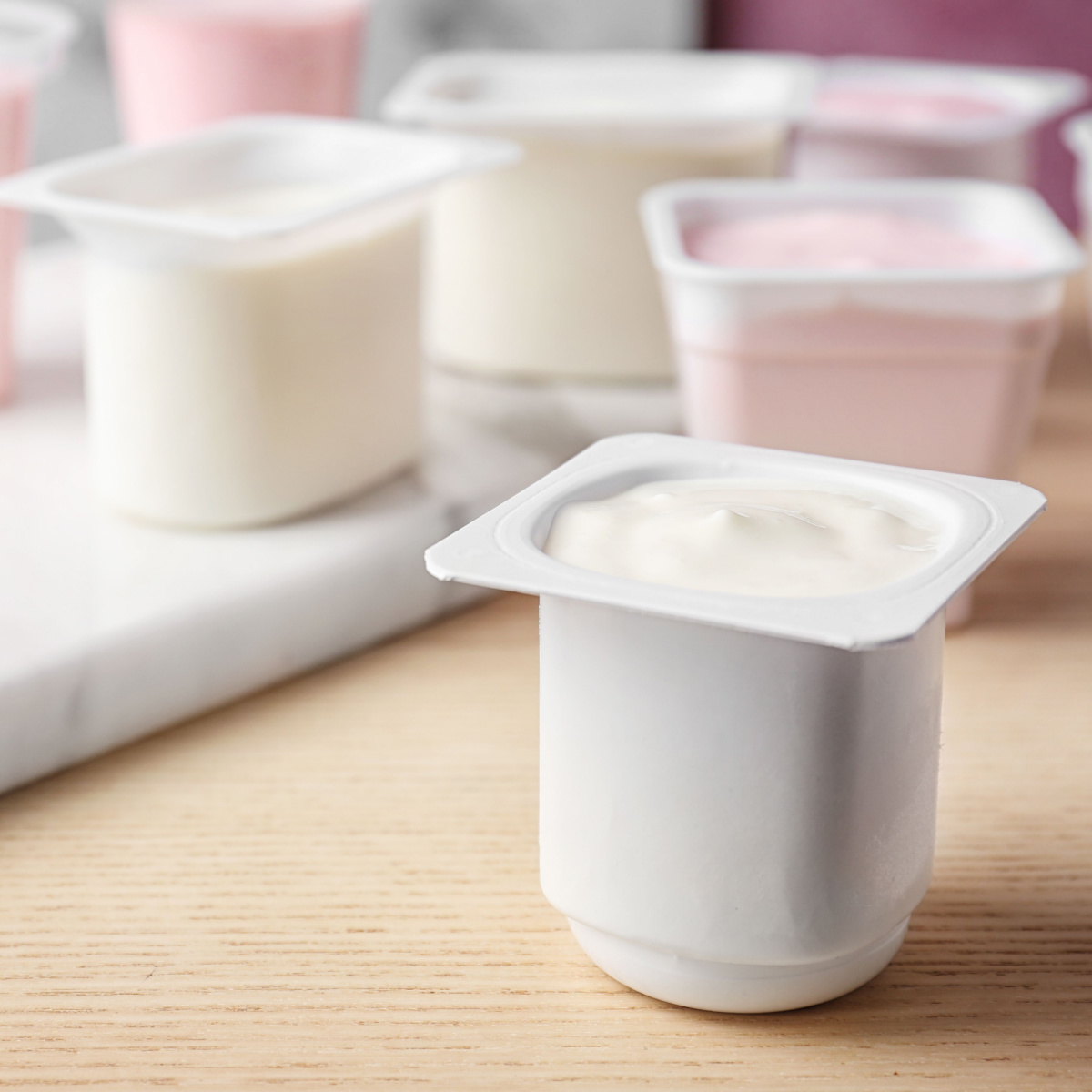Dairy products, renowned for their nutritional value and contribution to bone health, are staples in many diets. However, for some individuals, the consumption of certain dairy products can lead to bloating, indigestion, and, in turn, complicate weight loss efforts. While dairy contains essential nutrients like calcium and protein, some individuals may experience digestive discomfort due to lactose intolerance or sensitivity to specific components in dairy. This discomfort can manifest as bloating and indigestion, potentially affecting the overall well-being of individuals striving to lose weight. Understanding which dairy products may exacerbate bloating and indigestion is crucial for those aiming to strike a balance between reaping the nutritional benefits of dairy and minimizing potential obstacles in their weight loss journey.
We spoke with registered dietitian Cassie Madsen, MS, RD of Gut Health and Nutrition and health and nutrition expert; Corey Lewis, co-founder and CEO of 1AND1 Life; nutritionist Lisa Richards; nutritionist Mary Sabat; Natalie Gillett, registered dietitian; Sharon Puello, MA, RD, CDN, CDCES, registered dietitian at F.R.E.S.H Nutrition PLLC; and Lori Walker, a registered dietitian, freelance food, and nutrition writer at Easy Kitchen Guide. They revealed that whole milk, cheese, and sugar-laden yogurts are the dairy products to avoid for reduced bloating, indigestion, and weight loss.


Whole Milk
Whole milk, while a rich source of essential nutrients like calcium and vitamin D, can exacerbate bloating, indigestion, and contribute to weight gain for some individuals. Whole milk contains lactose, a sugar that requires sufficient levels of lactase enzyme for proper digestion. Individuals with lactose intolerance may experience bloating and indigestion as their bodies struggle to break down and absorb lactose. Additionally, whole milk is high in saturated fats and calories, which can contribute to excess calorie intake and potentially hinder weight loss efforts.
“The number one dairy product that people should avoid if they have lactose intolerance and chronic bloating is cow's milk,” Madsen says. “Milk has a higher amount of lactose than many other dairy products, and those that drink milk tend to consume a lot of it.”
Lewis agrees that whole milk contains the most lactose of all dairy products, and says it is “estimated that 68% of people can't process whole milk without problems,” given that it contains about 13 grams of lactose per 1-cup serving. “That is why it can cause bloating and nausea even if you are not lactose intolerant,” Lewis says. Although dairy products can serve as a nutritious source of protein and calcium, it's advisable not to push your stomach if they lead to any discomfort, he emphasizes.
As for weight gain, Sabat says "the worst milk option out there is non-organic whole milk." Most non-organic milk contain bovine growth hormone and antibiotics, which she states can increase inflammation. "Whole milk makes the product higher in cholesterol and saturated fat, both of which can lead to inflammation and weight gain," Sabat says. "In addition, fat carries toxins, so a non-organic whole milk may have toxins that are not only inflammatory but detrimental to health."

Cheese
Cheese, while a delicious and versatile addition to many dishes, can be a culprit in exacerbating bloating, indigestion, and weight gain for some individuals. Certain cheeses contain lactose, and those with lactose intolerance may experience digestive discomfort such as bloating and indigestion when consuming them. Additionally, cheese is often high in saturated fats and calories. Regular consumption of cheese, especially in large quantities, can contribute to an increased calorie intake, potentially hindering weight loss goals.
Cheeses with a high lactose content such as feta, American and ricotta are Puello's "most recommended dairy products to avoid" if you're suffering from chronic bloat. These products, she says, are often linked to bloating, indigestion and other stomach issues. "In general, when it comes to dairy, bloating most often comes from the lactose content of the specific food or beverage," she explains. "Certain dairy products though are naturally lower in lactose, or are available in a lactose-free version, and so may not result in bloating to the same degree, or at all," she points out, which might be a better option.
Walker elaborates on the weight gain aspect of cheese and says "processed cheeses like American cheese are loaded with sodium and saturated fats, both of which can raise blood pressure levels and increase risk of stroke or heart attack. High cholesterol levels can also be a result of consuming too much processed cheese as they contain large amounts of cholesterol-raising saturated fats. High levels of fat and calories can lead to weight gain, which is another risk factor for heart disease."

Sugar-Laden Yogurts
Sugary yogurts, despite being marketed as healthy snacks, can exacerbate bloating, indigestion, and contribute to weight gain. Many flavored yogurts contain added sugars, which can lead to digestive discomfort and bloating for some individuals. The high sugar content in these yogurts not only increases calorie intake but also can result in blood sugar spikes, potentially impacting energy levels and increasing cravings for more sugary foods.
“Dairy can be quite inflammatory and mucus producing. These two facts can lead to gas, bloating, and gastrointestinal issues,” explains nutritionist Lisa Richards. “This is especially true for sugar-laden yogurts made with added sugar and alternative sweeteners and flavors. For those that cannot break down lactose, the sugar in dairy products, this bloating can be worse,” notes Richards.
The sugar content also can lead to weight gain, as Gillett says, "Most flavored yogurts are loaded with sugar, some boasting up to 26 grams per 6 oz container—that's the max amount of sugar recommended in an entire day! Instead, opt for plain Greek yogurt and add fresh fruit or a touch of honey for natural sweetness."


























